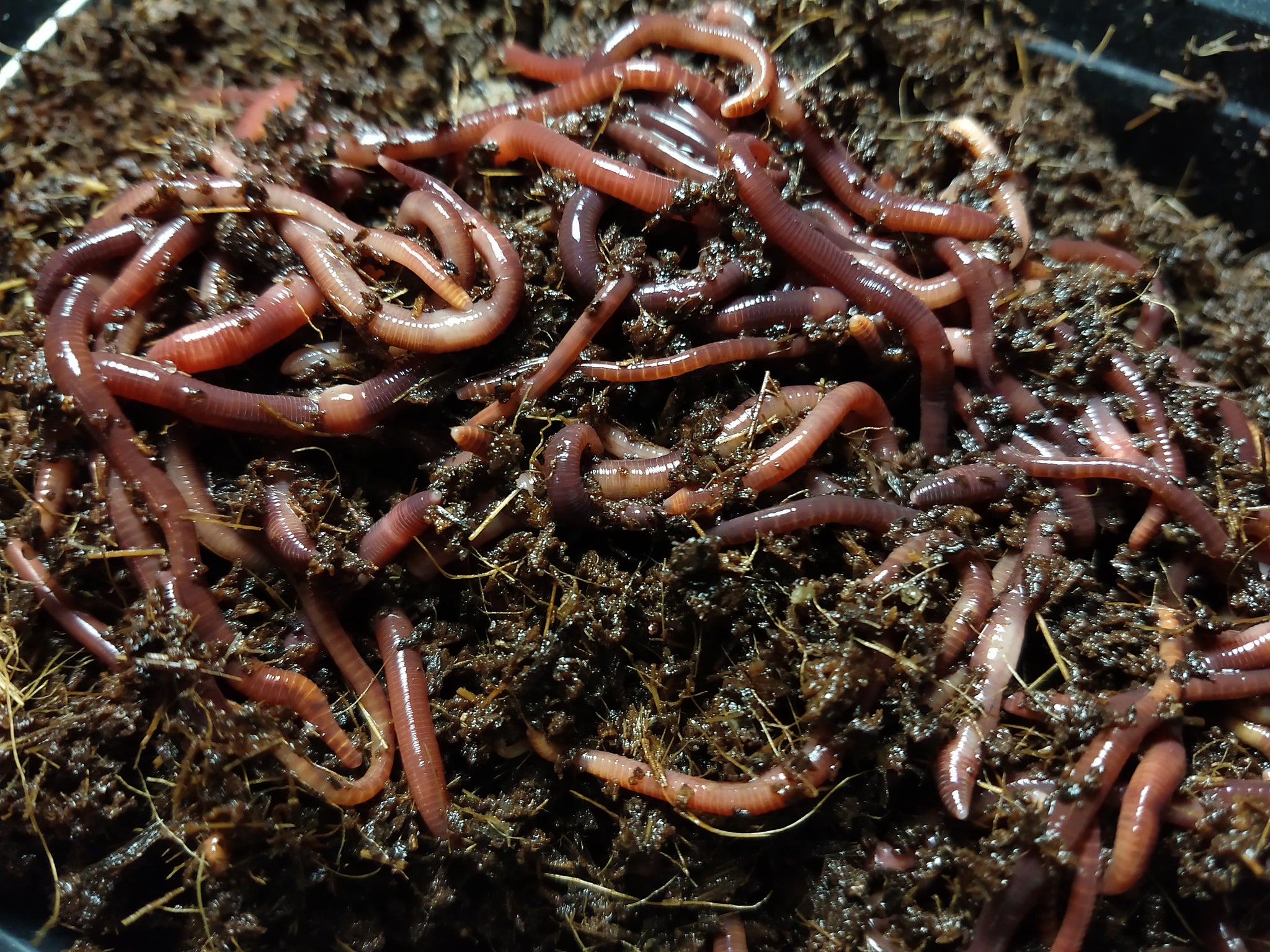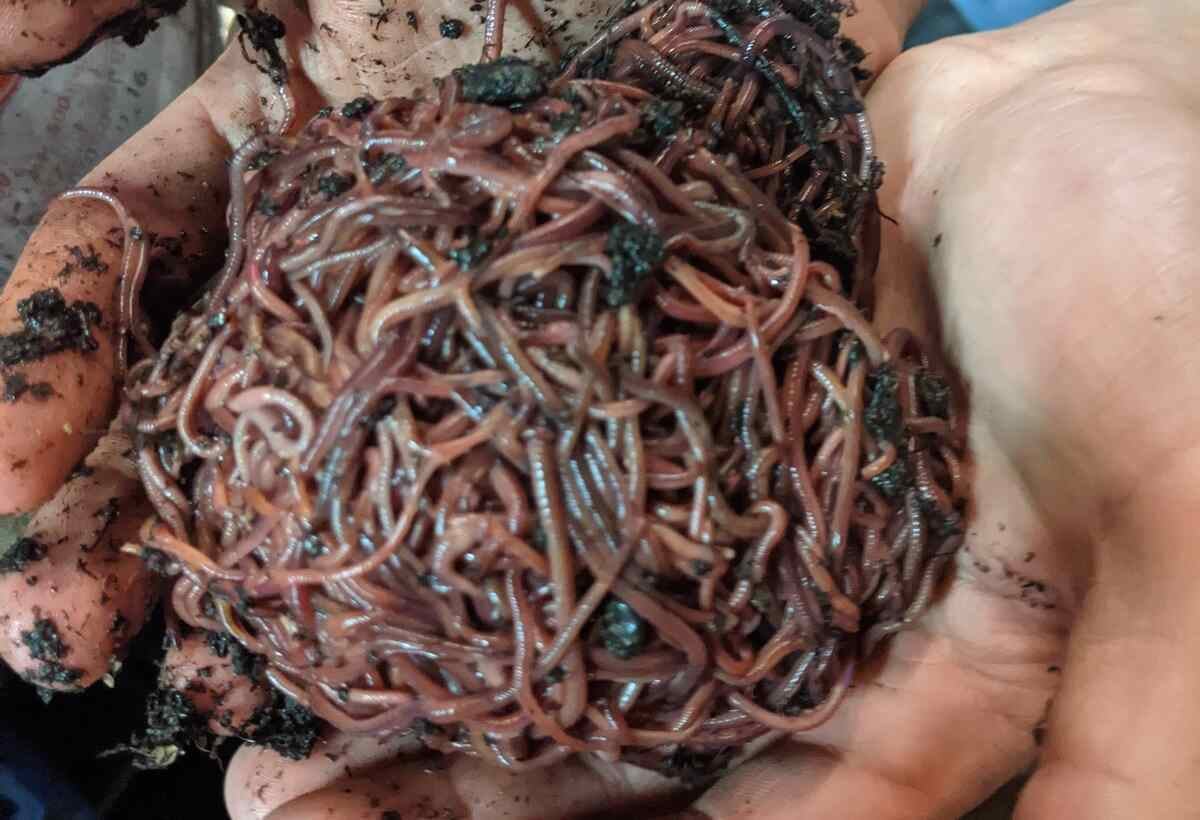The Amazing World of Red Wigglers: Boost Your Dirt Fertility Today
These small yet effective microorganisms transform natural waste right into important worm spreadings, significantly enhancing dirt health and promoting lasting practices. As we check out the advantages of vermicomposting and the practical steps to produce a reliable worm bin, the prospective influence of these worms on your horticulture success becomes progressively noticeable.
Understanding Red Wigglers
Red wigglers, clinically recognized as Eisenia fetida, are a species of earthworm that play an important duty in enhancing soil fertility. These worms flourish in organic-rich atmospheres, such as compost heap and decomposing plant material, where they consume organic waste and secrete nutrient-dense spreadings. Their special makeup, including a fractional body and a clitellum, allows them to reproduce quickly and effectively procedure large amounts of organic matter.

The ecological significance of red wigglers expands beyond mere waste handling; they add to the dirt food web, cultivating a varied community of microbes that even more enhance dirt health. Recognizing the biology and habits of red wigglers is essential for using their full possibility in sustainable farming and gardening techniques.
Benefits of Vermicomposting
(Red Wiggler Express)Utilizing the power of red wigglers via vermicomposting offers many advantages that considerably improve dirt health and fertility. Among the key advantages is the manufacturing of nutrient-rich worm spreadings, which are an outstanding all-natural plant food. Red Wiggler Express. These castings include crucial nutrients like nitrogen, phosphorus, and potassium, promoting robust plant development and boosting crop yields
The presence of worm castings improves soil texture, allowing for better water retention and drainage. Red wigglers help break down organic issue, accelerating decomposition and reusing nutrients back right into the dirt.
Vermicomposting additionally promotes microbial task, which is crucial for a healthy and balanced soil community. Beneficial bacteria flourish in the presence of worm castings, assisting in the failure of natural products and improving nutrient availability to plants.
Lastly, vermicomposting works as a reliable waste administration service, decreasing landfill waste by reusing cooking area scraps and other organic products. This not just adds to environmental sustainability yet likewise promotes a round economic situation within gardening and agriculture.
Just How to Establish a Worm Bin
Establishing a worm bin is a straightforward procedure that can substantially improve your composting initiatives. Begin by choosing a suitable container, which can vary from a readily available worm container to an easy plastic or wooden box (Red Wiggler Express). Make sure the container has sufficient air flow; little holes in the cover and sides will assist in air circulation
Following, create a bed linens layer to offer a comfy atmosphere for the red wigglers. This can be made from shredded paper, cardboard, or coconut coir, dampened to a damp, sponge-like consistency. Fill the container to around one-third full with this bed linen material.
When the bed linens is prepared, it's time to introduce the worms. Red wigglers grow in organic waste, so area them gently onto the bed linen. Cover the worms with a light layer of additional bed linen to aid them adapt.
Feeding Your Red Wigglers
Offering the appropriate food for your red wigglers is important for their health and wellness and the efficiency of your composting system. Red wigglers prosper on a diverse diet, mostly consisting of organic products such as fruit and vegetable scraps, coffee grounds, and shredded paper. These products not just provide necessary nutrients yet also add to the microbial task in the worm container, which is essential for the worms' food digestion.
It is very important to avoid specific foods, such as milk items, oils, and meats, as these can attract insects and produce undesirable smells. In addition, citrus peels and overly spicy foods must be restricted as a result of their potential to harm the worms. A balanced technique to feeding includes monitoring the amount of food introduced to the bin, guaranteeing that it is taken in within an affordable amount of time to stop excess waste buildup.
To advertise optimal digestion, it is advantageous to chop or shred larger food items before including them to the container. This technique increases the surface for microbial activity, facilitating quicker decomposition and boosting the total performance of your composting system. Routinely observing the worms' feeding habits will aid you readjust their diet regimen as needed.
Utilizing Worm Castings in Your Garden

(Red Wiggler Express)Incorporating worm spreadings right into your garden can be accomplished by blending them into the soil or utilizing them as a top dressing. The slow-release nature of these spreadings guarantees that nutrients are available to plants over an extensive duration, decreasing the need for artificial fertilizers. In addition, worm spreadings include beneficial microorganisms that advertise healthy dirt environments, enhancing the total durability of your yard.
To make best use of the benefits, aim to use approximately one component worm castings to three components soil in your growing beds. Regular applications can bring about enhanced plant yields and much healthier plants, making worm castings a very useful resource for both amateur and skilled garden enthusiasts alike. By utilizing this all-natural modification, you can cultivate a growing garden while adding to sustainable horticulture techniques.
Final Thought
In verdict, red wigglers exemplify the essential role of vermicomposting in improving dirt fertility. Their ability to convert natural waste into nutrient-rich castings substantially improves soil structure and sustains microbial variety. Establishing a vermicomposting system not only check here advertises lasting gardening practices however additionally adds to environmental wellness. By leveraging the advantages of these remarkable organisms, garden enthusiasts can grow extra productive and resilient environments, inevitably cultivating a more sustainable technique to farming and cultivation.